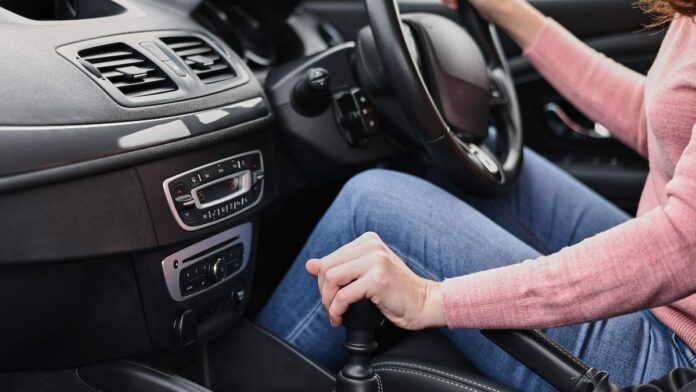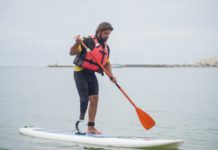We tend to take driving for granted—we never think that we’ll be the ones involved in a dangerous car accident until we either witness one happen before our eyes or are involved in one ourselves. As a result of this, you may not be aware of how your habits and routines may negatively impact your driving—thankfully, we’re here to change that.
This article will cover a few poor driving habits you may have developed due to your lifestyle, explain the potential dangers involved, and provide some actionable advice on staying safe. However, despite our best advice and wishes you could still potentially end up in an accident through no fault of your own, and if this happens and you or someone you care for is injured, consider hiring an accident lawyer to help you through your case.
Night Driving
Nighttime is one of the most dangerous times to drive, and the reduced visibility, potential sleepiness of other drivers, bright headlights, and more all contribute to this danger.
Most of the time, you should be able to get your traveling done during the day, which will completely avoid many of the potential dangers that are associated with driving after the sun sets. However, there are many times when driving at night is required like during emergencies or for those who work night shifts, and in these scenarios a good tip to help you stay safe is to keep your view clear and avoid two-lane highways.
Oncoming traffic will have their bright lights on, but even if they don’t, their headlights can create glare and make it harder to see, so avoiding two lanes when possible will keep you safer. Ensure your windshield wipers are functioning correctly and that you keep your windshield clean during our trip to reduce the glare from oncoming traffic and any other bright lights.
Drowsy Drifting
Drowsy driving is incredibly common and is incredibly dangerous since falling asleep at the wheel could result in drifting off the road or into oncoming traffic. Even if you manage to stay awake, your reaction time is slowed, and you’re more likely to miss important turns or stops, so the best way to avoid drowsy driving is to get enough sleep in the first place.
This can be difficult due to your work schedule and everything else you need to do during the day, but failing to get enough sleep will make driving more dangerous and make you more susceptible to potential health risks down the road. While each person needs a different amount of sleep each night, it’s recommended that you try and get at least seven hours each night if you’re an adult and eight if you’re a teenager.
If you still feel drowsy behind the wheel, try getting some caffeine in your system or pull over for a bit to rest and also make sure to avoid any medication that causes drowsiness and driving while intoxicated as well.
Distracted Travel
Even if you get enough sleep and avoid driving at night, there are still some destructive habits you may be participating in, such as driving while distracted. Distracted driving may be caused by looking at your phone, talking with others in the car, reading billboards, and so much more.
To put it simply, paying attention to anything besides the road ahead of you is known as distracted driving, and the best way to avoid this is to put your phone down, and you can even turn it off for the duration of your trip if you need to. Also, passengers can be asked to be quieter or to mess with the radio to allow you to focus better on your driving.
GPSs can be important, but looking at them too long or messing with them while you’re driving is incredibly dangerous, so only try to peek at your GPS when you need to and stop somewhere safe before messing with it. Furthermore, ignore billboards as much as possible—static ones have images and text intended to get your attention, and digital ones may cycle through text and pictures, which may cause nausea if you suffer from motion sickness.
Weathering the Weather
Various weather conditions can make driving more dangerous, which is another important thing to keep in mind. Paying attention to the weather is an important part of driving safely, as it gives you an idea of what to expect as you travel and when you may need to stop, and also, when the weather is warmer try to pay close attention to fog and heavy rain.
When possible, avoid driving in heavy fog since the reduced visibility it causes can result in you not reacting as quickly as you should or coming in contact with any number of hazards you would see otherwise.
Heavy rain also creates a visibility problem, can be distracting due to the loud noise, and may even cause flooding. Avoiding driving in heavy rain is ideal, but it can sometimes start suddenly—and if this happens to you while you’re on the road, try to find a safe place to pull over and stop until it ends.
Common cold weather hazards include snow, ice, and salt. White-out snow is when snow falls so quickly and densely that you can’t see very well, similar to fog or heavy rain, and icy roads can make roads more slippery and can be very hard to see, especially if it’s black ice. Salted roads will prevent snow from sticking and ice from forming most of the time, but if the temperatures are extreme enough, there may still be patches of ice here and there.
Another hazard to watch for is high wind speeds, which can occur in any season and make driving harder by blowing debris everywhere or making rain and snow more difficult to see through.
Staying Safe On The Roadways
There are many more bad driving habits you’re going to want to avoid, such as eating or drinking while driving and speeding. If you oversleep or are otherwise going to be late, then it may be safer to embrace this fact than to speed on the roads—the consequences for being late aren’t fun, but at least you’ll have made it to your destination safely.
As you drive, watch for bad driving habits you or those around you have and try to avoid or break your own and try to help those you know if you can—after all, the fewer bad habits we have when driving, the safer our trips will be.
















